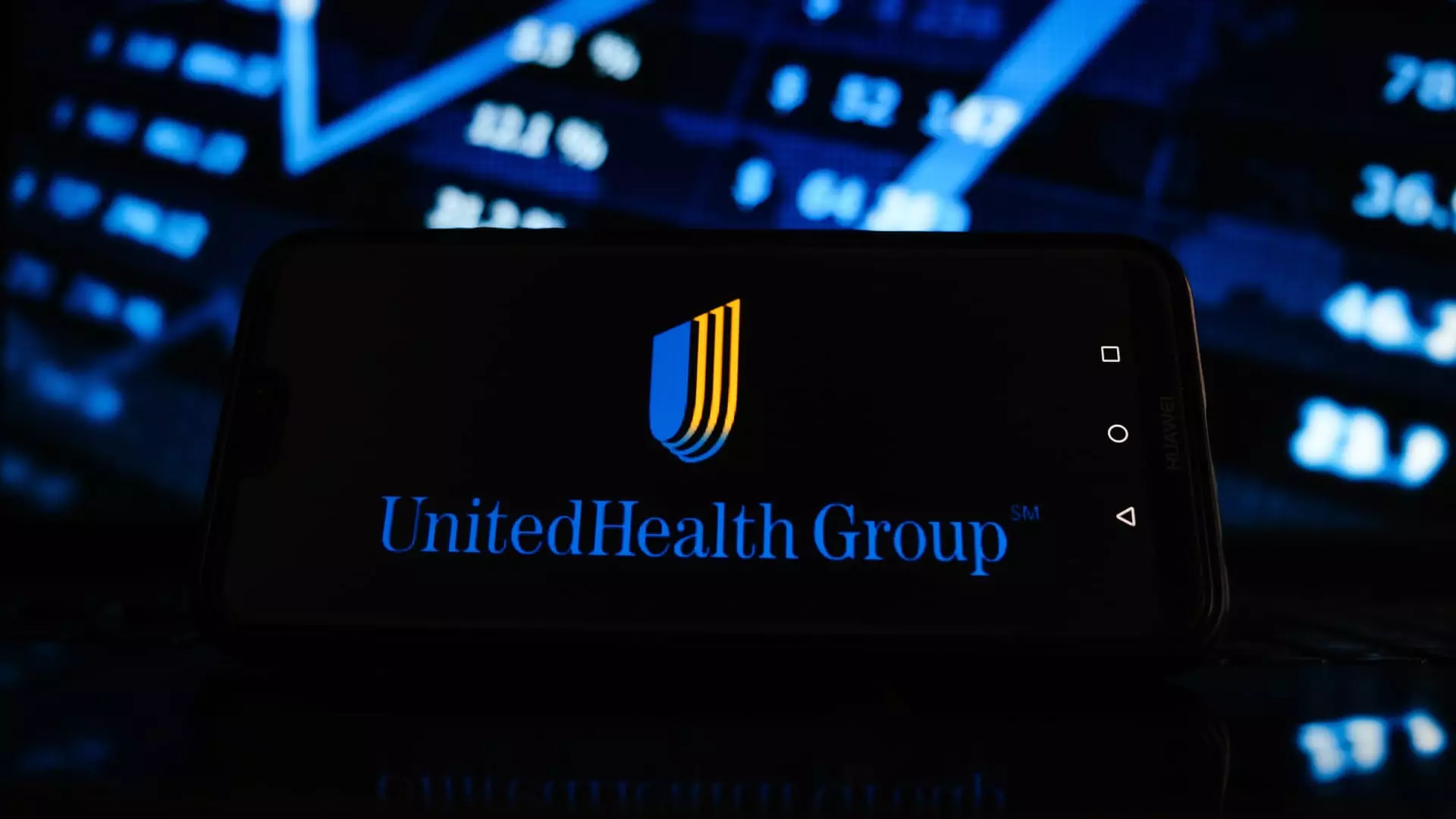In a week that saw a surprising surge in major stock indices—amid positive trade negotiations between the United States and China—UnitedHealth’s performance was nothing short of catastrophic. Despite the S&P 500 experiencing a robust uptick of 5.3% and the Dow Jones, after a series of lackluster months, finally clawing its way back into positive territory for 2025, UnitedHealth continued its downward spiral. The stark contrast between the health insurance giant’s fate and the broader market rebound raises pressing questions about its operational integrity and long-term viability amidst a sea of systemic volatility.
Criminal Investigations Cast a Long Shadow
No segment of the corporate world can afford to overlook the specter of legal troubles, particularly in a sector as sensitive as health insurance. UnitedHealth’s shares plummeted 23% in just a week, hitting a troubling five-year low, following revelations of a Department of Justice criminal investigation into potential Medicare fraud. The market responded irrationally, with the stock being marked as “historically oversold” with an RSI dipping to 14.9—its lowest level since the 2008 Global Financial Crisis. This alarming indicator, while reflecting short-term trading sentiment, signals a deeper malaise within the company. It also demonstrates how the company might be trapped in a whirlwind of negative press, compounded by lackluster performance warnings related to unexpectedly high medical costs in its Medicare plans.
The Inversion of Investor Sentiment
Despite the catastrophic stock price drop, a glimmer of hope emerged as some insiders moved to buy shares at what they believe to be a discount. However, such optimism is tinged with skepticism. It reflects a collective sentiment that the company’s intrinsic value, clouded by scandal, is poised for recovery—but only if foundational issues are resolved. Analysts maintain a bullish outlook despite these troubling signs, suggesting a potential upside of over 64%. Yet, it’s troubling that professional analysts are still willing to label an entity undergoing such scrutiny as a “buy.” Do they favor numbers over ethics? The crux of the matter is: trust, not data, drives long-term investments.
Market Behavior: Overbought vs. Oversold
The larger market seems to be responding to a rebalancing act, with select stocks, such as NRG Energy seeing a robust RSI of approximately 80 after a significant acquisition, soaring in value. This dichotomy raises an important question: what is more significant—momentum or fundamentals? In the throes of economic unpredictability, focusing on well-rounded investment strategies appears critical. The overbought sentiment surrounding giants like Microsoft and Broadcom, paired with sky-high valuations, might suggest impending corrections. Furthermore, it is essential to remember the old adage that what goes up must come down.
UnitedHealth’s Future Lacks Clarity
Given its current trajectory, UnitedHealth is caught in a precarious situation. Having slashed its annual profit forecasts, it risks losing investor confidence at a time when trust is paramount. The company faces challenges that delve deeper than surface-level stock fluctuations. Core operational inadequacies, heightened regulatory scrutiny, and the ever-looming threat of market volatility might further complicate its future. As healthcare becomes a pivotal factor in both political and economic spheres, insurers must adapt and innovate—or face dire consequences.
As investors contemplate the landscape ahead, it is crucial to approach UnitedHealth with a discerning eye—one that prioritizes not only potential rewards but also the inherent risks. While the immediate focus might be on short-term metrics, sustainable investment strategies should consider ethical implications as well as financial indicators. After all, in the complex interplay between healthcare and finance, integrity must not be an afterthought.

